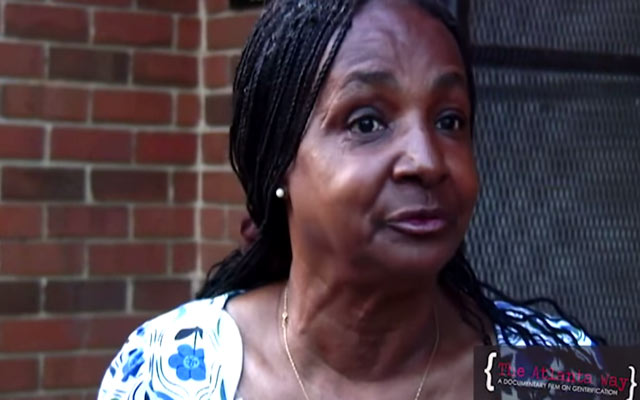Not long ago, Atlanta was a city that had the highest proportion of its residents living in public housing in the nation. Today, that proportion has dropped the zero. Like many cities in the 1990’s, Atlanta went about tearing down its World War II-era public housing projects in an effort to spread low-income families around the city instead of segregating them in areas besieged by entrenched poverty. But a new film by King Williams called "The Atlanta Way" asks a pretty basic question: Has it worked?
The answer, it turns out, is complicated. As Stephanie Garlock explains at the Atlantic Cities:
Many in metro Atlanta assume that the city’s system of private vouchers has pushed former residents out to the suburbs, particularly the increasingly poor and increasingly non-whiteClayton County to the south. But Williams’ efforts to track former public housing residents have shown this isn’t necessarily the case. "Everyone pretty much has this idea that’s really not grounded by facts," he says.
Most of the residents that The Atlanta Way follows stayed within the city or the surrounding jurisdiction of Fulton County. Williams cites evidence from a 2011 study by Georgia States’ Deirdre Oakley, which found that most residents ended up in new places within, on average, three miles of their former homes. They also clustered in just a small fraction of the city’s census tracts, ones that remained much poorer than the city-wide average. For Williams, this shows that the ambitious goals of the demolitions and policy reforms haven’t all been met. Crime rates may have gone down in some parts of the city, particularly places where some of the most dangerous housing projects once stood, but, he says, "in terms of mobility, in terms of those people having access to jobs? That really hasn’t happened."
Williams has launched a Kickstarter in order to finish the film. In the video above, activist Diane Wright, who was a leader in the former Hollywood Courts, explains: "They think because we live in the projects that we are the projects. We’re human beings first and foremost, and we’re residents who want to have something. If you’re going to tear down a property and displace people, they should have the opportunity to speak out."
